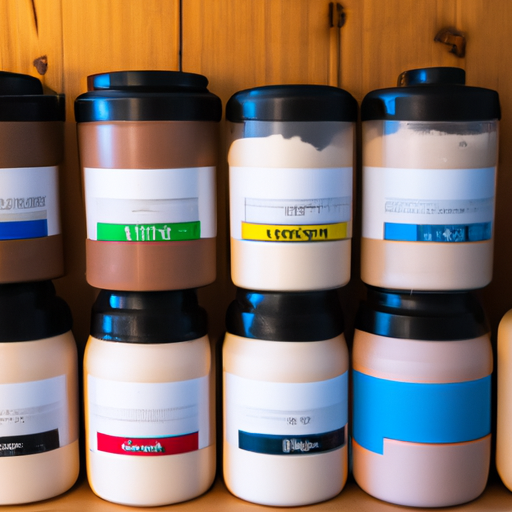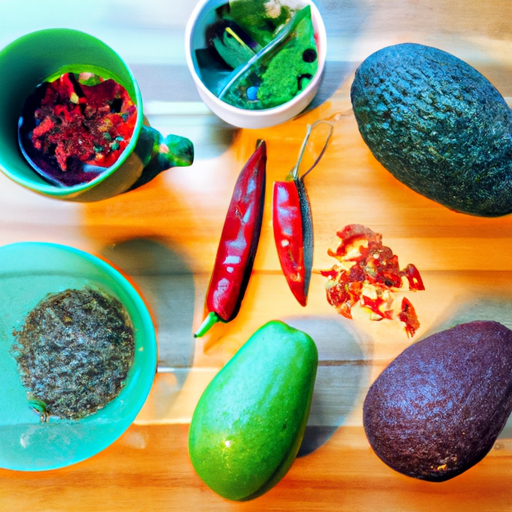
How to Choose the Right Protein Powder for Your Goals
Choosing the right protein powder in the vast ocean of fitness supplements can be a daunting task. With options ranging from whey to soy and pea to cricket (yes, cricket!), you'll be wondering if you need a Ph.D. in nutrition science just to boost your muscle growth. Fret not! This guide will simplify your life. Spoiler alert: It won't involve eating insects.
Understand Your Goals
Before you purchase any protein powder, it's crucial to define your goals:
- Are you looking to build muscle?
- Do you want to lose weight?
- Is post-workout recovery your primary concern?
- Or are you just trying to reduce the number of eggs you consume weekly?
Once you know what you want, choosing the right product becomes much easier.
Types of Protein Powders
Fitness supplements come in various forms, each with unique benefits. Let's explore the most common ones:
Whey Protein
A staple in the world of muscle growth, whey protein is derived from milk. It contains all nine essential amino acids, making it a complete protein. Whey's high bioavailability means that your body absorbs it quickly and efficiently. It's great for:
- Building muscle
- Post-workout recovery
- Those who aren't lactose intolerant and enjoy milk mustaches in chocolate, vanilla, or a questionable 'birthday cake' flavor
Casein Protein
Also derived from milk, casein protein releases amino acids more slowly compared to whey. It's perfect for:
- Taking before bed
- Prolonged amino acid supply
- People who enjoy prolonged suspense before muscle growth
Plant-Based Proteins
These options include soy, pea, hemp, and brown rice protein. They're ideal for:
- Vegans and vegetarians
- Those with lactose intolerance
- Anyone who likes to argue that peas have feelings too
Egg Protein
Famous for being rich in BCAAs (branched-chain amino acids), egg protein is an excellent alternative for those avoiding dairy. It's best for:
- High-quality protein without dairy
- Tried and true muscle growth
- Egg enthusiasts who ran out of frying pans
Collagen
While not a complete protein, collagen is making waves for its potential benefits on skin and joint health. It is aimed at:
- Joint support
- Beauty-focused goals
- Those who hope to postpone surgeries with a smoothie
Check the Labels
When choosing your protein powder, always check the label. Key elements to look out for include:
- Protein content per serving
- Sources of protein
- Additional ingredients, such as sugar, flavorings, and additives
- Macros like fats and carbohydrates
- Any unpronounceable words that hint at sweating marketing teams
Consider Dietary Restrictions
If you have specific dietary restrictions, adjust accordingly:
- Lactose intolerant? Opt for plant-based or egg protein.
- Allergic to soy? Stick with whey or other non-soy plant options.
- Want to keep your snack free of gluten, nuts, and fun? Verify allergy statements.
Flavor Matters
Let's be honest — If it tastes like the underside of a gym shoe, you're not going to stick with it. Choosing a flavor that appeals to your taste buds increases your commitment to consumption.
Popular preferences include:
- Classic chocolate or vanilla
- Fruity vibes like strawberry or banana
- Adventurous flavors for the brave-hearted, like 'cookies and cream' or 'unicorn surprise'
Consider Price and Quality
You don't have to break the bank for quality protein powder, but opting for the cheapest option available might not support your goals either. Look for:
- Recognized brands with positive reviews
- Certifications from quality-testing agencies
- Consistent ingredient sourcing
- The assurance that "unicorn sprinkles" aren't the primary ingredient
Think About Digestibility
It's essential that your body can easily digest and absorb the protein powder you choose. Signs of digestive discomfort or bloating may indicate that it's time to switch brands or types. Keeping a journal might help you pinpoint what works best for you.
Pay Attention to Serving Sizes
All protein powders are not created equal when it comes to serving sizes. Some may offer 20 grams of protein per scoop, while others might need double the amount. Always check how much actual protein you are getting per serving relative to your daily needs. Your muscles will thank you.
Consult a Nutritionist
When in doubt, consulting a professional nutritionist can tailor advice to your specific needs. They can:
- Provide insight into what protein powder is ideal for your goals
- Help balance your overall diet and supplementation
- Help you decipher ingredient labels like an elite code breaker
The Bottom Line
Choosing the right protein powder to support your muscle growth and fitness goals doesn't have to be any more complicated than your last algebra test. Keeping it simple with the right focus will open the door to optimal results:
- Define your goals
- Understand protein types
- Check labels and nutritional information
- Consider dietary restrictions and digestibility
- Flavor, price, and quality do matter
Remember, protein powders are supplements — they are meant to supplement your diet, not replace solid food. Think of them as the Robin to your nutrition Batman. But most importantly, prioritize enjoying the journey of reaching your fitness aspirations with a stride that matches your personal beliefs, dietary needs, and taste preferences.
